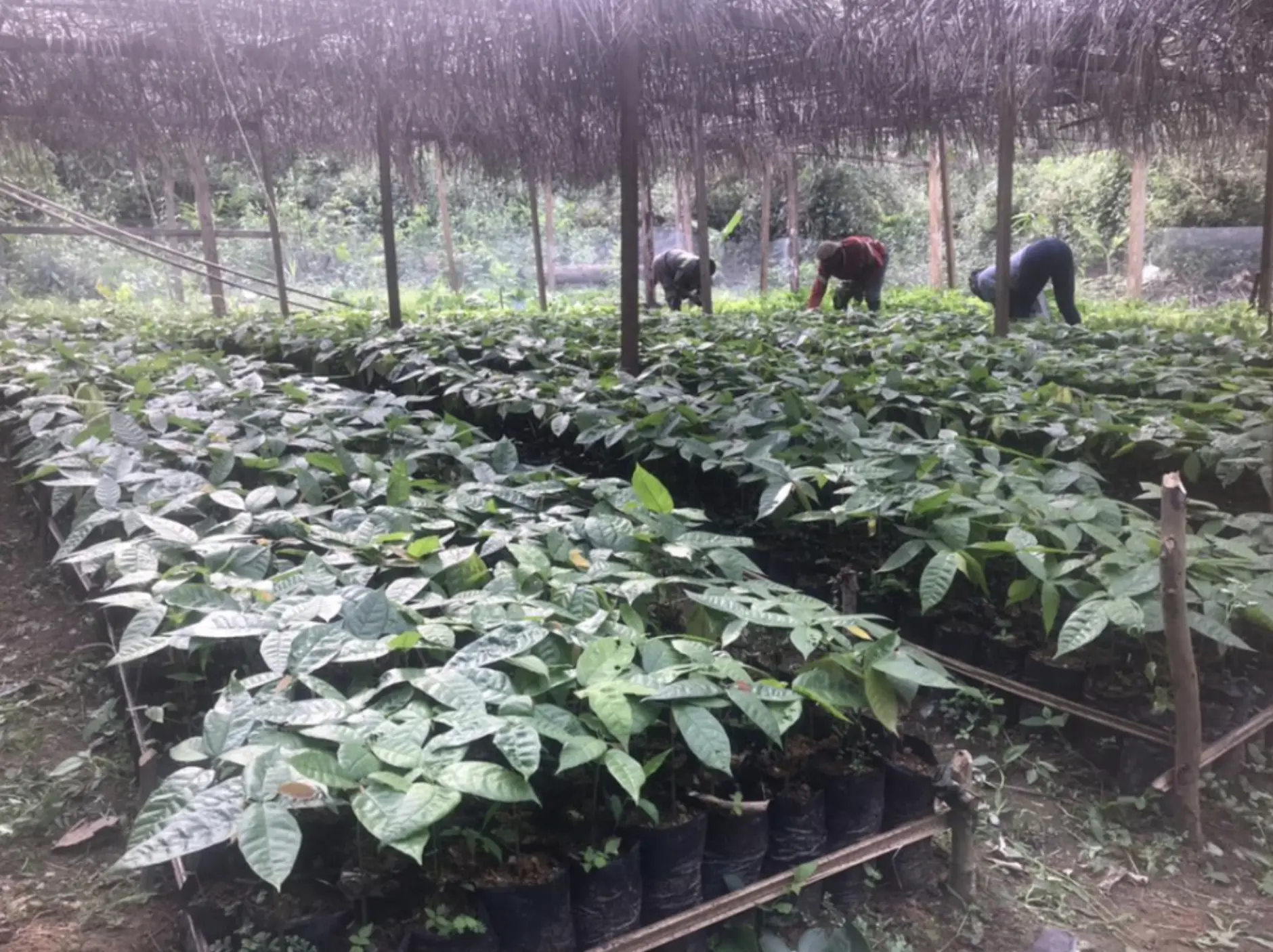To read the original story in full, visit Cameroon Tribune. Our website is available in English, Spanish, bahasa Indonesia, French, and Portuguese.

The American international NGO Rainforest Alliance seeks to protect biodiversity and assure livelihoods of farmers and forest communities by promoting their rights and helping them to tackle and adapt to climate change. Rainforest Alliance is active in the Congo Basin where man has for tens of thousands of years managed to coexist with lush tropical rainforests. With Rainforest support over the years, 10,000 tropical plant, 400 mammal, 700 fish, and 1,000 bird species in the Congo Basin are now closer to safety.
Dja Wildlife Reserve-support Project
Since 2017, Rainforest Alliance has been implementing the Cameroon Community Forestry project in Mintom Subdivision, Dja and Lobo Division of Cameroon’s South Region, though active in the area since 2010. The project is located south of Dja Wildlife Reserve, which is part of Tri-national Dja-Odzala-Minkebe (TRIDOM) cross-border conservation initiative covering Cameroon, Congo-Brazzaville, and Gabon. “The main objective of Cameroon Community Forestry project is to improve farmers’ livelihoods through sustainable management of community forest landscapes in Mintom,” says Cédric Happy, Rainforest Alliance Field Supervisor for the project.
Three-prong Livelihood Approach
Cameroon Community Forestry project comprises components for supporting cocoa farming, gathering and marketing Non-Timber Forestry Products (NTFPs), and community forestry. “We trained farmers in best cocoa farming practices, offered revolving funds worth 3 million FCFA, and equipped the cocoa farmers’ cooperative to enhance performance, marketing, and assure traceability of sold cocoa. The 126-member cooperative was also assisted to get an office, connected with two credible cocoa buyers and partnership deals signed with them. The deals provide for the supply of 100 metric tonnes of quality cocoa beans per annum, grown without cutting down forests,” Happy stresses.
Rejuvenating, Restoring Cocoa Farms
"Cocoa farmers have witnessed both rejuvenation and restoration to boost productivity and avoid felling trees to expand farms. The pilot phase of the project saw the setting up of four nurseries which produced 20,600 cocoa pods planted on 20 hectares,” Happy notes with a broad smile.
Cocoa Certification As Added Value
"Our next step is to assist the cocoa farmers’ cooperative to engage in Rainforest Alliance certification of their produce. Farmers will undergo an audit in the coming months. We have already carried out geolocation of 98 percent of members’ farms, which are all located inside community forests. This is good news for the certification process because the law does not forbid farms to be created inside community forests,” Cédric explains.
Non-Timber Product Gatherers Organised
Rainforest in 2021 assisted Mintom female Non-Timber Forestry Products, NTFP gatherers to form and register their group. They were then linked with the association of NTFP exporters in Ebolowa, South Region to which they sold 2 metric tonnes of Bush mango at 3,500 FCFA per basket. Unlike non-members who during the same period sold their Bush mango at 2,500 FCFA per basket to middlemen.
“Only recently, we offered the 30-member Mintom NTFP Cooperative revolving funds worth 2.5 million FCFA to help secure members’ produce while awaiting group sales later this year. In the course of 2022, we intend to assist the cooperative get papers for distributing their produce. And set up nurseries for 5,000 NTFP plants and fruit trees,” Cédric discloses. Rainforest also donated drying equipment to NTFP female gatherers. “This year, we plan to assist the NTFP Cooperative get an office where they can store their produce before group sales,” Happy announces.
Sustainable Community Forest Management
Equipment has been donated to RAFCOM, the grouping of Mintom Community Forest Enterprises (CFEs), including a moveable sawmill and chain saws, as well as training in sustainable logging. Two community forests were assisted to draw up or update their management plans. “This year, we will assist three more community forests in Mintom to draw up or update their management plans. Out of the 14 community forests in Mintom, the management plans of 10 are already outdated,” Cédric Happy reveals.
Rising CFE Profile
Since reviewing its forestry law in 1994, Cameroon has established or recognized 300 community forests, covering about 1 million hectares. With Rainforest Alliance’s support under the Cameroon Community Forestry project, Community Forest Enterprises have made significant progress in the past five years. Their approved management plans now cover 30,000 hectares, while business partnerships have been signed with timber buyers.










